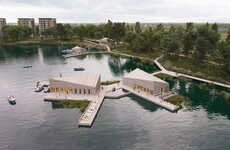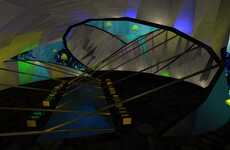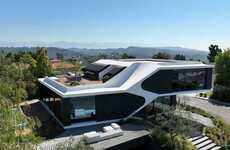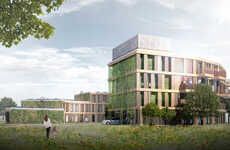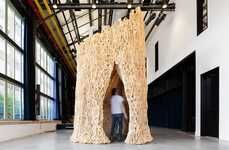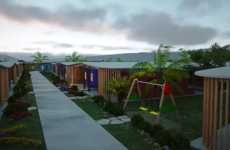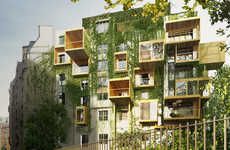
SCI-Arc is Proposing an AI-Controlled Park in Los Angeles
References: sciarc.edu & dezeen
Students in the Master of Science in Architectural Technologies Program at the Southern California Institute of Architecture proposed a sustainability-focused architecture project for the site of a former jail in Los Angeles. The program is in its first year of operation and is focused on addressing critical ecological issues with cutting-edge technology and architecture.
The proposed design reaps the benefits of 3D technology and artificial intelligence to bring cost-effective housing and a self-growing park to Los Angeles. The idea behind the self-sustaining vegetation is based on a desire to create something that blurs the line between "the rainforest and the luxury of the garden mall." In addition, the architecture project addresses not only ecology, but it aims to provide affordable housing with a design "that integrates residences with data centers and energy-production programmes."
The proposed design reaps the benefits of 3D technology and artificial intelligence to bring cost-effective housing and a self-growing park to Los Angeles. The idea behind the self-sustaining vegetation is based on a desire to create something that blurs the line between "the rainforest and the luxury of the garden mall." In addition, the architecture project addresses not only ecology, but it aims to provide affordable housing with a design "that integrates residences with data centers and energy-production programmes."
Trend Themes
1. Sustainability-focused Architecture - This trend presents opportunities for architects to incorporate sustainable materials and technologies into their designs, reducing the environmental impact of buildings.
2. 3D Technology in Architecture - Architects can leverage 3D technology to create cost-effective and innovative designs, improving efficiency and precision in the construction process.
3. Artificial Intelligence in Urban Development - The integration of artificial intelligence in urban development projects can lead to optimized and intelligent systems, enhancing the functionality and sustainability of cities.
Industry Implications
1. Architecture - The architecture industry can explore disruptive innovation opportunities by incorporating sustainable practices and leveraging advanced technologies like 3D printing and AI.
2. Construction - Incorporating 3D technology in construction processes can streamline operations, reduce material waste, and allow for more complex and intricate designs.
3. Urban Planning - The use of artificial intelligence in urban planning can optimize resource allocation, improve transportation systems, and create sustainable and livable cities.
5.3
Score
Popularity
Activity
Freshness



